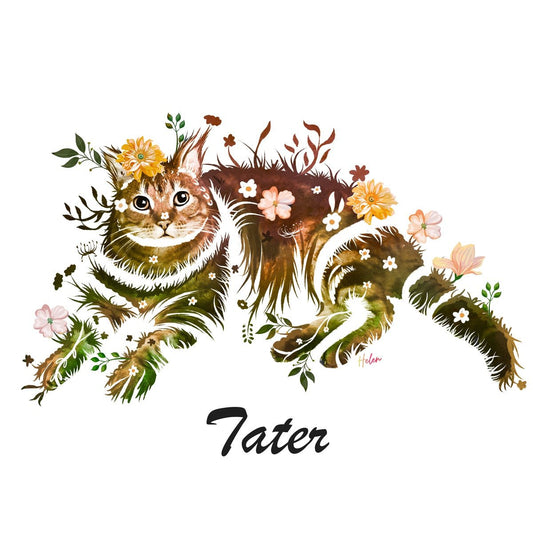Last month I had the honor of talking to Chiara Castelli, a psychotherapist from Parma about mourning and the importance of listening to each other in such a delicate moment.
In this article I want to give you his advice and experience in this regard.

The importance of listening
“When I was contacted by Helen I immediately thought it was necessary to talk about the importance of mourning... And given the type of products made to remember the dearly departed, people or animals of the family.”
Chiara then continues…
“But talking about mourning means talking about "psychological trauma", a construct that has become very media-focused especially after the pandemic. Trauma is a subjective concept, but there are relevant and scientifically shared connotations. It is often considered a "soul wound", something that breaks the usual way of life and has a negative impact on the person who experiences it.
There are "small traumas" or "t", i.e. those subjectively disturbing experiences which are characterized by a not particularly intense perception of danger, and "major traumas" or "T", i.e. all those events which lead to death or which threaten own physical integrity or that of loved ones.”
The psychotherapist Chiara also states that…
"Not all people who live a traumatic experience react in the same way.
The time to mourn can vary from person to person
And not all mourning is the same reactions: can vary from complete recovery in a relatively short to more severe reactions.
In fact, an unprocessed mourning can generate emotional blocks, anger or apparently unmotivated sadness up to the onset of disorders with clinical relevance (Post-Traumatic Stress Disorder, anxiety attacks, depression, sleep disorders, obsessive and intrusive thoughts that also appear accidentally)."
“Events that have a very strong emotional impact often also have consequences on the body level, it is therefore necessary to intervene directly on the elaboration of these traumatic events so that they don't also have effects on the neurobiology of our brain.
Biologically, our brain already works optimally to try to "digest" the lived event but if this is not enough, we continue to suffer even after a very long time with symptoms such as flashbacks, reliving the disturbing sensations of that moment, fatigue in retelling what happened, emotional blocks, difficulty concentrating and psychosomatic symptoms.
There is therefore a risk of perceiving the past as present history.”
The importance of listening and asking for help when you need it
“When you realize that suffering is significant, you need to ask a specialist for help. And give your time to overcome and rework the incident by entrusting yourself to a specialized person. This person who will also be able to reduce the feeling of loneliness or inadequacy that could arise from the trauma.”
Chiara also mentions various psychotherapeutic techniques for mourning:
"The techniques that can be experimented in psychotherapy to rework the trauma, work on the emotional aspect, on the beliefs present at a cognitive level and on the physiological responses. In addition to the traditional interview, can be different, I mention only a few as examples:
- Body relaxation and visualization techniques;
- Mindfulness;
- EFT- Emotionally Focused Therapy
- EMDR- Eye Movement Desensitization and Reprocessing
- CBT- Cognitive Behaviour Therapy, ACT”
Choosing to rely on a specialist does not mean being "weak". But it means having the courage to face your fears and suffering head-on. At the same time getting out of the negative loop that has been gripping your insides, your mind and your body.
Finally managing to honor, remember and imprint the memories of your loved one forever and positively.
You are surrounded by love
Also remember that your friends and family are always there to support and help you. You are surrounded by love.
Don't close in on yourself, but give them the opportunity to support you in this delicate moment.
Give them the opportunity to be by your side, cry with them, vent if you need to.
Do some activities together, whether they are creative activities or even a simple walk.
I talk about it in this blog article: How to help a friend in mourning
Many thanks to Chiara Castelli for the chat we had with her, and for giving us her point of view and her experience in this article.
A big hug,
Helen






2 comments
Thankyou for that very heartfelt insight , it is a very generous and kind gesture that you are making in helping others with Grief and Trauma , thankyou 💜
Enjoyed reading miss my Gus been three years February 29 2020. Still teary eyed